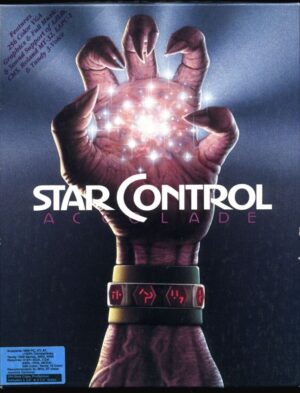Retro Replay Review
Gameplay
Search & Destroy’s most striking gameplay feature is its sheer variety. You switch between point-and-click adventures like The Journeyman Project: Turbo! and Big Red Adventure, exploratory sci-fi mystery in Universe, stealth-flavored action in Zorro, and the fast-paced, run-and-gun corridors of the Rise of the Triad shareware. This compilation ties them together under one launcher, giving you the freedom to jump into any genre at will—no swapping discs or hunting down vintage hardware required.
(HEY YOU!! We hope you enjoy! We try not to run ads. So basically, this is a very expensive hobby running this site. Please consider joining us for updates, forums, and more. Network w/ us to make some cash or friends while retro gaming, and you can win some free retro games for posting. Okay, carry on 👍)
The point-and-click titles remain faithful to their late ’80s and early ’90s roots: inventory puzzles, dialogue trees, and pixel-hunt sequences are all present. In Turbo! you’re exploring time-twisting environments with a methodical pace, while Big Red Adventure trades high-tech gizmos for humor and cartoon capers. Universe stands out for its non-linear map and cryptic puzzle design, demanding careful note-taking or a well-worn walkthrough.
Zorro introduces basic stealth mechanics where timing and line-of-sight are paramount. It’s a refreshing break from pure puzzle-solving, though its AI can feel inconsistent by modern standards. Rise of the Triad shareware brings the compilation into first-person territory, with frantic weapon pickups, secret rooms, and a handful of unique power-ups. Though dated compared to current shooters, its breakneck speed remains addictive, making for a nostalgic bullet ballet.
While some players may crave modern quality-of-life features—autosaves, hints, or improved pathing—the compilation offers optional save slots and configurable controls. It’s an honest preservation rather than a full remaster, so die-hard fans will appreciate the authentic mechanics and occasional rough edges that defined early interactive storytelling and FPS action.
Graphics
Visually, Search & Destroy wears its age proudly. Each title is presented in its original resolution, with pixel art and pre-rendered backgrounds characteristic of late ‘80s and early ‘90s PC gaming. The Journeyman Project: Turbo! looks particularly sharp with hand-painted locales and digitized actor sequences, while Big Red Adventure’s cartoonish palette pops on modern displays.
Universe and Zorro lean heavily on static backdrops and simple sprite animation, which can feel static next to today’s dynamic engines. However, if you appreciate retro aesthetics, these games shine: intricate spaceship corridors, lavish period sets, and hand-drawn sketches evoke a bygone era of experimentation. Rise of the Triad’s shareware levels use a rudimentary 2.5D engine, with blocky walls and chunky sprites—nostalgic for fans of Wolfenstein 3D but stark compared to contemporary shooters.
The compilation includes optional scaling filters and adjustable color palettes, allowing you to choose between crisp pixels or softened scanlines. These tweaks help mitigate the jarring jump from one engine to the next, though you may still find yourself toggling settings as you move between intravenous adventure and full-throttle FPS mayhem.
Load times are minimal, thanks to modern hard drives and SSDs. There’s no emulation stutter or soundtrack popping—a welcome improvement over sourcing original floppy disks or CDs. For purists worried about authenticity, each game’s music and sound effects are intact, delivering chiptune melodies, spoken dialogue clips, and satisfying weapon audio exactly as originally composed.
Story
Although Search & Destroy isn’t a single narrative, its anthology format delivers a tour through diverse storytelling styles. The Journeyman Project: Turbo! spins a time-travel conspiracy with global stakes, weaving puzzles around temporal paradoxes. Its cast of quirky characters and polished voiceovers remain memorable, even if some plot threads feel dated.
Big Red Adventure takes a lighter tone, sending you on a cross-country scavenger hunt with zany villains and caricatured landmarks. Its self-aware humor and pop-culture references still elicit laughs, though some jokes hinge on ’90s media allusions that newer players might miss.
Universe’s storyline invites you to roam the cosmos in search of mysterious alien artifacts. It excels at atmosphere and world-building, but its narrative can feel sparse until late game. Patience is rewarded with jaw-dropping reveals, yet players unused to open-ended exploration may find themselves adrift without guidance.
Zorro and Rise of the Triad ground the compilation with action-driven plots: one a period piece about a masked hero’s fight for justice, the other an over-the-top shooter narrative packed with betrayals and underground conspiracies. Both deliver straightforward motivations and pulpy flair, ensuring you know exactly why you’re storming castles or corridors full of mutant monstrosities.
Overall Experience
Search & Destroy is a love letter to classic PC gaming, offering a cornucopia of genres wrapped in a single downloadable package. The highs—innovative time-tinkering puzzles, laugh-out-loud adventure gags, sprawling sci-fi vistas, and bullet-hell corridors—far outweigh occasional frustrations like pixel hunts or clunky interfaces. It’s a curated blast from the past that never demands you track down vintage hardware.
As a compilation, it balances historical preservation with modern accessibility. You can remap keys, tweak graphics filters, and save at will—features absent in the original retail releases. While purists might lament the lack of fresh artwork or sound re-recordings, the core experience feels authentic and immersive, especially for those eager to revisit or discover these influential titles.
Value-wise, Search & Destroy is a steal for fans of retro gaming or anyone curious about the evolution of interactive storytelling. Its diverse lineup ensures that you’re never stuck in a single gameplay groove for too long, and the collective run time easily spans dozens of hours across all five games.
In the end, Search & Destroy delivers an engaging journey through PC gaming history. Whether you came for the puzzles, the humor, the sci-fi mysteries, or the adrenaline-fueled shooter action, this compilation stands as a testament to the creativity of early game developers—and remains a fun, varied package for modern audiences.
 Retro Replay Retro Replay gaming reviews, news, emulation, geek stuff and more!
Retro Replay Retro Replay gaming reviews, news, emulation, geek stuff and more!




Reviews
There are no reviews yet.